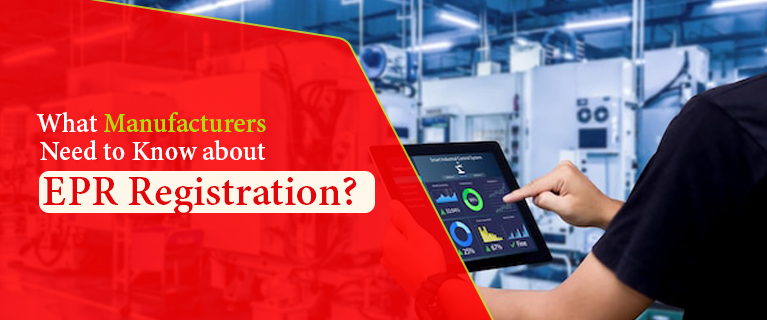Essential Documents for EPR Certification
Producers in the electronic sectors are required to obtain an Extended Producer Responsibility/EPR certificate, often known as an E-Waste Management licence. The phrase "Electronic Waste Management" refers to the process of getting rid of electronic garbage in a way that doesn't harm the environment.
As electronic waste continues to pose significant environmental and health risks, India has implemented Extended Producer Responsibility (EPR) regulations to address the management of e-waste. Acquiring an EPR license is a crucial step for manufacturers and exporters to demonstrate their commitment to responsible e-waste management. In this blog, we will explore the essential documents required for obtaining an EPR license in India. These documents range from legal papers and certifications to compliance records and agreements. By understanding and fulfilling the necessary documentation, businesses can contribute to a sustainable and environmentally friendly approach to e-waste management.
1. Address Proof and Legal Papers
To apply for an EPR license, manufacturers and exporters must provide address proof documents that verify their physical location. This can include utility bills, lease agreements, or property ownership documents. Additionally, legal papers such as business registration certificates, partnership deeds, or incorporation documents are required to establish the legitimacy of the organization.
2. Certificate of Incorporation and IE Code
A valid Certificate of Incorporation, issued by the Registrar of Companies, is essential to demonstrate the legal existence of the business entity. Additionally, the Import Export (IE) Code, issued by the Directorate General of Foreign Trade, is required for organizations involved in the import or export of electronic products.
3. Certificates by Municipal Corporations or Local Bodies
Depending on the location of the business, certification from the respective Municipal Corporations or local bodies may be necessary.These certificates confirm compliance with local regulations and waste management practices.
4. Contact Details and PAN Card Copy
Providing accurate contact details, including phone numbers, email addresses, and postal addresses, is crucial for effective communication throughout the licensing process. Additionally, a copy of the Permanent Account Number (PAN) card is required for tax-related identification purposes.
5. Authorized Person Details and Aadhaar Card
The authorized person responsible for signing the EPR license application must provide their personal details, including their Aadhaar Card, which serves as a unique identification document in India.
6. Product Details, Import History, and BIS License
Manufacturers and exporters need to provide comprehensive information about the electronic products they produce or deal with. This includes details such as model numbers, specifications, and import history. If applicable, a copy of the Bureau of Indian Standards (BIS) license must be submitted to demonstrate compliance with national quality and safety standards.
7. RoHS Compliance and Recycler Details
Proof of compliance with the Reduction of Hazardous Substances (RoHS) guidelines is essential to ensure that electronic products meet restricted substance limits. Additionally, information about the authorized recycler or recycling facility involved in the management of e-waste must be provided.
8. Estimation of E-Waste Management and Budget
An estimation of the e-waste management process, including collection, transportation, recycling, and disposal, should be submitted along with a budget plan. This helps ensure that adequate resources are allocated for the effective management of e-waste.
9. Awareness Program Details and EPR Plan
Manufacturers and exporters are required to outline their awareness programs aimed at educating consumers and stakeholders about proper e-waste management. Additionally, an EPR plan that outlines the strategies and measures for managing e-waste should be provided.
10. Agreements with Collection Centres, Dealers, Recyclers, Storage, and Disposal Facilities
Copies of agreements with authorized collection centres, dealers, recyclers, storage facilities, and disposal units must be submitted. These agreements establish the formal collaborations and partnerships necessary for the effective management of e-waste.
11. Website Content Demonstrating Commitment to E-Waste Management
To showcase their commitment to responsible e-waste management, manufacturers and exporters must provide website content that highlights their initiatives, policies, and efforts in this regard.
Read Also This - The Importance of EPR Certification in IndiaConclusion
Obtaining an EPR license in India requires a comprehensive set of documents that reflect a manufacturer or importer's commitment to responsible e-waste management. By providing accurate and complete documentation, businesses contribute to the creation of a sustainable and environmentally conscious approach to electronic waste. Adhering to EPR regulations and fulfilling the necessary requirements ensures the proper collection, recycling, and disposal of e-waste, minimizing its detrimental impact on the environment and human health. With effective EPR implementation, India can move closer to achieving its vision of a greener and cleaner future.




Comments
Post a Comment